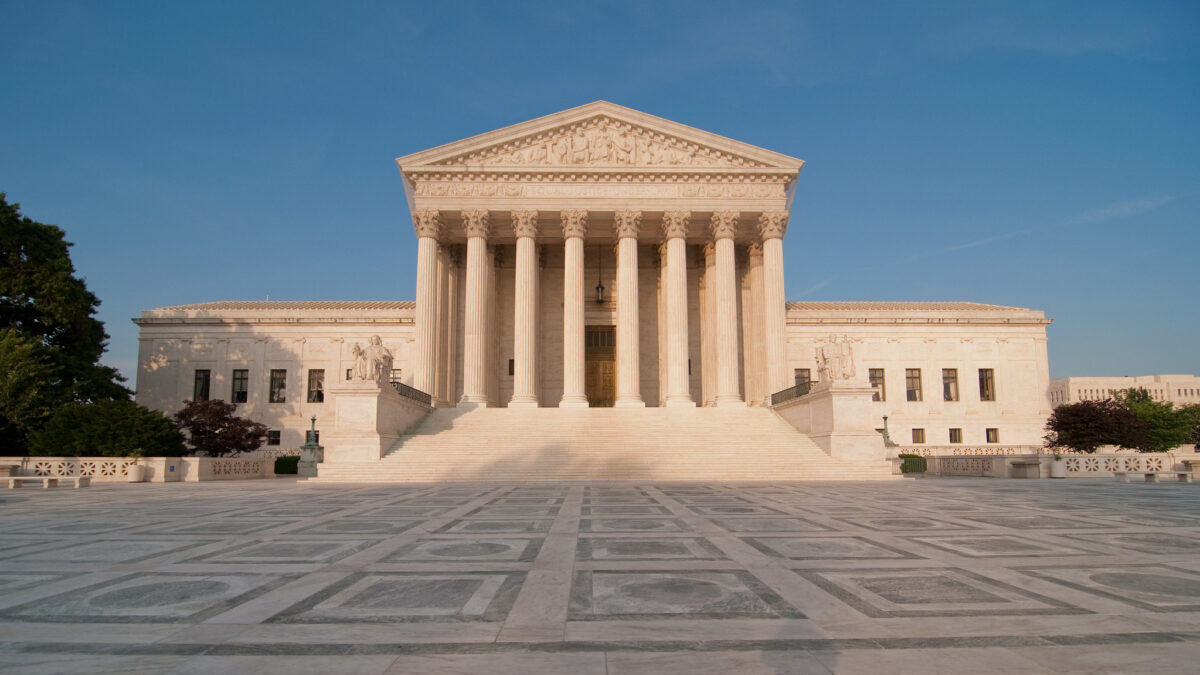Supreme Court to rule on US immunity from lawsuits.
The U.S. Supreme Court to Decide on Government’s Liability for Damages
The U.S. Supreme Court has agreed to hear a case that will determine whether the United States government can be sued for monetary damages.
The high court agreed on June 20 to review an appeals court ruling that Reginald Kirtz could sue the U.S. Department of Agriculture (USDA) for wrongly stating on his credit report that some of his loans were overdue, damaging his credit score.
At issue is whether Congress waived the United States’ sovereign immunity from lawsuits when it modified consumer protection laws nearly 30 years ago.
Kirtz sued the USDA in 2020, alleging that the agency violated the Fair Credit Reporting Act (FCRA), which Congress amended decades ago to impose new requirements on lenders.
A district court sided with the USDA and dismissed Kirtz’s complaint on the premise that Congress did not intend to waive the federal government’s immunity from lawsuits.
Kirtz appealed and the U.S. Court of Appeals for the Third Circuit ruled in his favor, prompting the USDA to file a petition (pdf) with the U.S. Supreme Court, arguing that the lower court’s decision is incorrect.
After considering the matter, the Supreme Court justices announced on Tuesday in an order list (pdf) that they would hear the case, which will likely happen within several months.
The question presented before the high court is whether the civil-liability provisions of the Fair Credit Reporting Act “unequivocally and unambiguously waive the sovereign immunity of the United States.”
More Details
Kirtz’s attorneys filed a petition (pdf) with the Supreme Court in May that argued that the Third Circuit was correct in ruling that the Fair Credit Reporting Act waives the sovereign immunity of the federal government by authorizing consumers to sue federal agencies for violations of the act.
The alleged violation was that the USDA failed to correct an inaccurate statement that wrongly reported that Kirtz’s account was 120 days past due on a loan made to him by the USDA, damaging his credit score.
When Kirtz first went to federal court in 2020, he accused the USDA of violating the Fair Credit Reporting Act, but the USDA asked the district court to dismiss the case.
The USDA argued that the Fair Credit Reporting Act did not clearly indicate that Congress meant to waive the federal government’s immunity from lawsuits.
The district court sided with the USDA but that decision was later reversed on appeal.
Kirtz’s team argued that the USDA incorrectly suggested that Congress must enact an explicit statutory waiver of sovereign immunity for a waiver to be effective.
In siding with Kirtz, the Third Circuit Court of Appeals pointed to the definition of “person” in the Fair Credit Reporting Act, which includes “any ‘government or governmental subdivision or agency.”
Further, the appeals court said that, because the federal government is the largest employer and creditor in the United States, allowing lawsuits against it would be in line with Congress’s aim to protect consumers.
" Conservative News Daily does not always share or support the views and opinions expressed here; they are just those of the writer."





Now loading...